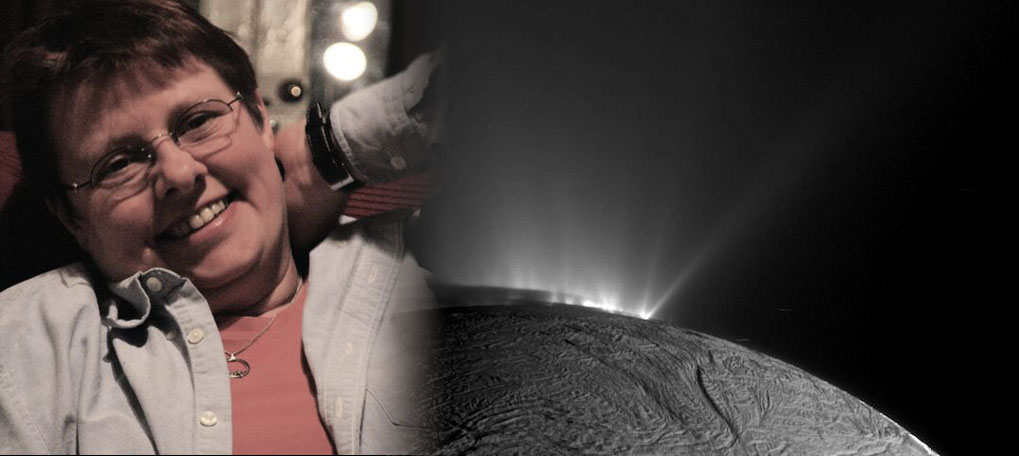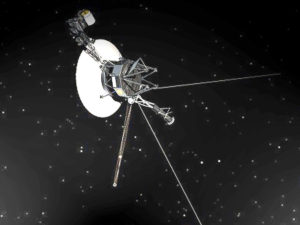
By Maureen Kincaid Speller
Choices are difficult. I’m not always good at making them. Lengthy restaurant menus are torture when all I want to do is eat. Boxes of chocolates require a lengthy examination of the descriptions. I felt similarly when I looked at last year’s Clarke Award submissions list for my first stint on the Shadow Clarke jury. How would I pull half a dozen titles out of that list? In the end, it proved not too difficult; my choices were whimsical and eclectic but ultimately rewarding, and when I considered them more carefully, they revealed a lot about my unvoiced interests in literature. What I noticed especially was how difficult I found it to explicate what I meant by science fiction, and that set me reading and thinking about the matter in more detail. That’s been helpful in approaching the task this year.
This year, inevitably, my decision-making process is going to be more focused and more self-conscious, so I’ve laid out a few ground rules for myself. First, I have tried to avoid seeing what the other jurors are choosing, so this selection process has been conducted in isolation. Second, my Shadow Clarke to-read list isn’t going to feature anything I’ve already read, although there are some titles there I’d dearly like to discuss with the other jurors: Nick Harkaway’s Gnomon, for example, which is very much my kind of novel – formally inventive, a challenging read, a great story. But Gnomon is among a handful of titles already touted as shoo-ins for the official Clarke shortlist, and I have also decided to avoid putting any of those on my to-read list. I’m going to read them anyway and at this stage I’d rather experiment in my reading and see what’s going on in sf. This may seem very perverse but I would remind you that this exercise is categorically not about attempting to second-guess the official shortlist. As such I have leeway to explore.
With those decisions made, things become both easier and more complicated. Critics and reviewers are mortals like the rest of the world, and we all have our prejudices. For example, as I’ve noted before, I dislike zombie novels and while I could test that prejudice by reading a zombie novel – there seems to be a prime candidate on the list – I’ve come to the conclusion that I am secure enough in my understanding of my active dislikes to avoid wasting everyone’s time by confronting them, because the chances of anything positive emerging from the encounter are unlikely.
I have also discarded a lot of novels on the basis of their blurbs: ‘When [name] arrives on/at [geographical name] [singular pronoun, and rarely gender-neutral or non-binary] quickly realises that something is very wrong. Soon, [name] is [active noun] for [possessive pronoun] life, knowing only [singular pronoun] can [climactic verb] [the world/family/something else terribly important that I found I didn’t care about]. If this is the best the blurb writer can come up with, it doesn’t bode well for the novel. The point I want to make here is that reading the blurb is part of the process of making a choice. Blurb-writing is a difficult thing. There is the need to strike a balance between enticing in the reader and being at least moderately accurate about the novel’s content. On the basis of a lot of what I’ve read, and trusting those blurbs are truthful, thanks, but no thanks. If the novel has been done a disservice, I’m sure I’ll hear about it from other sources. And possibly some publishers need to up their blurb-writing game.
After that, the process becomes more opaque. A lot of titles on this list feature post-apocalyptic or dystopian settings, although the apocalypse is not necessarily immediately germane to the story, so far as I can tell. I’ve been watching this river of post apocalyptic and/or dystopian novels for a while, uncertain about how to address it as a phenomenon. Should I even bother? There’s a huge temptation at times to simply dismiss the phenomenon out of hand, partly as writers borrowing sf themes without properly understanding them (and yes, I have done that in the past), and partly as a tired response to dealing with the world around us, which is frankly terrifying, but that no longer seems a sensible approach to something that clearly isn’t going to stop happening any time soon. Instead, I want to think more carefully about the ways in which writers use apocalypse (and I use that term very broadly).
So, the first of my selected titles is Clade by James Bradley, which to judge from the blurb on Amazon, has everything: England falling apart, big weather, civil unrest, concerns with fertility, oh, and bees. What particularly interests me about this blurb is the fact that there are so many things jostling for attention. In terms of craft, I’m curious to see how Bradley pulls it all together, but I’m struck too by the fact that it implies complexity, and that seems to me very welcome when so much fiction appears directed towards reducing a complicated world to a single issue in need of solution. Also, I’m aware that this novel has divided opinion, so I’m looking forward to engaging with the critical writing about it.
My second choice is Angus Peter Campbell’s Memory and Straw. This caught my attention initially because of the protagonist’s occupation, using AI to generate faces for bots taking care of elderly people. How Campbell negotiates the shift from this to the protagonist’s search for his own identity intrigues me – I’m increasingly interested in the way in which writers use science-fictional themes without necessarily writing traditional science fiction, and I’m hoping this novel will provide a platform to think about that in more detail. Also, I was hooked by the sample chapter on Amazon, and that worked rather well for me last year with Martin Macinnes’ Infinite Ground.
Jaroslav Kalfař’s Spaceman of Bohemia has been on my radar for some time, and I’m glad to give myself the opportunity to read it now. Again, I’m interested in seeing how it deals with traditional sf themes alongside the personal and the political. I can already see so many possibilities for discussion here. And the title is so eye-catching. Bohemia smacks more of Shakespeare than the twenty-first century, hinting at alternative universes. I’m curious too about the idea of a ‘Czech spaceman’, which makes me think of the old days of the Soviet Union, and sending token cosmonauts from eastern bloc countries into space.
I’ve noted before that I’m interested in how writers use form and genre, and I’m particularly interested in how sf writers have so often in recent years turned to the detective novel for inspiration. A couple of novels stand out in the submissions list – Jeff Noon’s A Man of Shadows, which I have read, and Adam Roberts’ The Real-Town Murders which, to my shame, I have not yet read. Roberts is the most formally exciting sf writer currently working, so inventive that it would be fair to say that some people struggle with his work. I confess it’s taken me a long time to get to grips with what he is doing, but I’m looking forward to exploring this novel.
Michelle Tea’s Black Wave has a truly eye-popping blurb. When I read it, my first thought was ‘is that even science fiction?’, at which point I immediately put it on my list, because if I’m asking myself a question like that, I really need to take a look. As I’ve famously said recently, I want to be astonished by science fiction [https://paperknife.wordpress.com/2018/03/20/on-wanting-to-be-astonished-by-science-fiction/], and if Black Wave doesn’t astonish me, nothing will. More seriously, there’s another impending apocalypse, and I’m interested in the fact that the novel’s protagonist, also called Michelle, also a novelist, is seemingly trying to reconcile the end of the world with their artistic process. This makes me think of The City, Not Long After, by Pat Murphy, a novel I’ve always loved, but also prompts me to think about what life in the apocalyptic and post-apocalyptic world will be like, not in terms merely of survival, but in the sustaining of a creative life. There is a lot of uncomfortable rhetoric currently doing the rounds about how out of great suffering inevitably comes great art and I think that could stand being tested.
Finally, I have one sentimental choice. Years ago, I read David Zindell’s Neverness and I was completely blown away by it. It made me feel for a brief while that I understood mathematics in all its glorious complexity, before the sensation dissipated, leaving only a strong sense of remembered pleasure, sufficient that my Zindell novels has survived many prunings of the book collection, even though I’ve never reread the novels (sometimes I think I’m too scared to, in case they don’t live up to that memory). It’s been a long time since I saw anything by Zindell, so I was pleased to seeThe Idiot Gods turn up on the submissions list. Whether I am being wise by stepping back into that stream, I don’t know, but a number of things attract me to the novel, not least the fact of it’s being told from the viewpoint of an orca, and I’m curious to see how Zindell attempts to create the point of view of a different creature, particularly one reputed to be so fiercely intelligent, possibly more intelligent than humans.
*
Maureen Kincaid Speller is a critic and reviewer. She is Senior Reviews Editor at Strange Horizons, and Assistant Editor of Foundation: the International Review of Science Fiction. She also reviews for Interzone and Vector. She is a former Arthur C. Clarke Award judge, and a former James Tiptree Jr. Award judge. She also blogs at Paper Knife.
2 Comments
-
Another really interesting list! Thanks for sharing the process behind it.
Somewhat ironically, as I also have fond memories of Neverness from back in the day, the only one of these books that was not at all on my radar (in a couple of cases, such as Memory and Straw, I was aware of them only because Nina has blogged about them) is Zindell’s new novel. I’ll be very curious to hear what you think of it.
Pingbacks
-
[…] SHARKE BITES. Shadow Clarke juror Maureen Kincaid Speller shares her picks: “A Shadow Clarke 2018 selection box – six exciting centres”. First, what you won’t find in her […]


